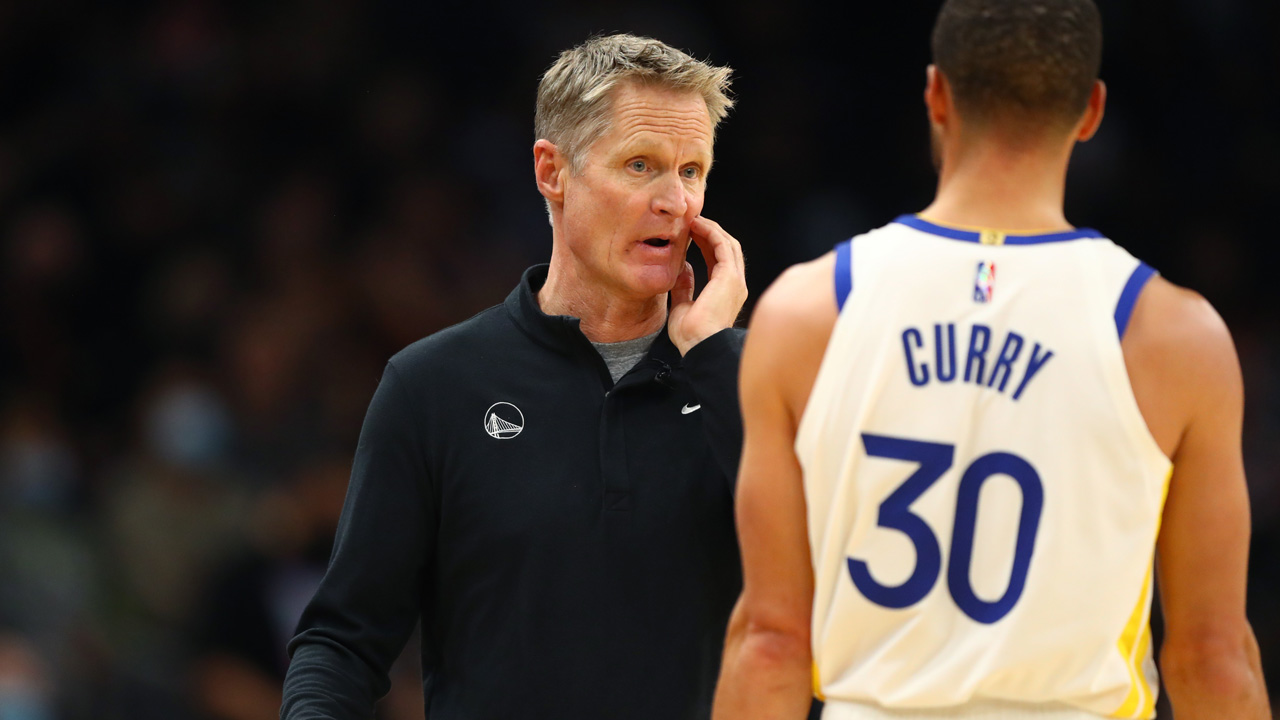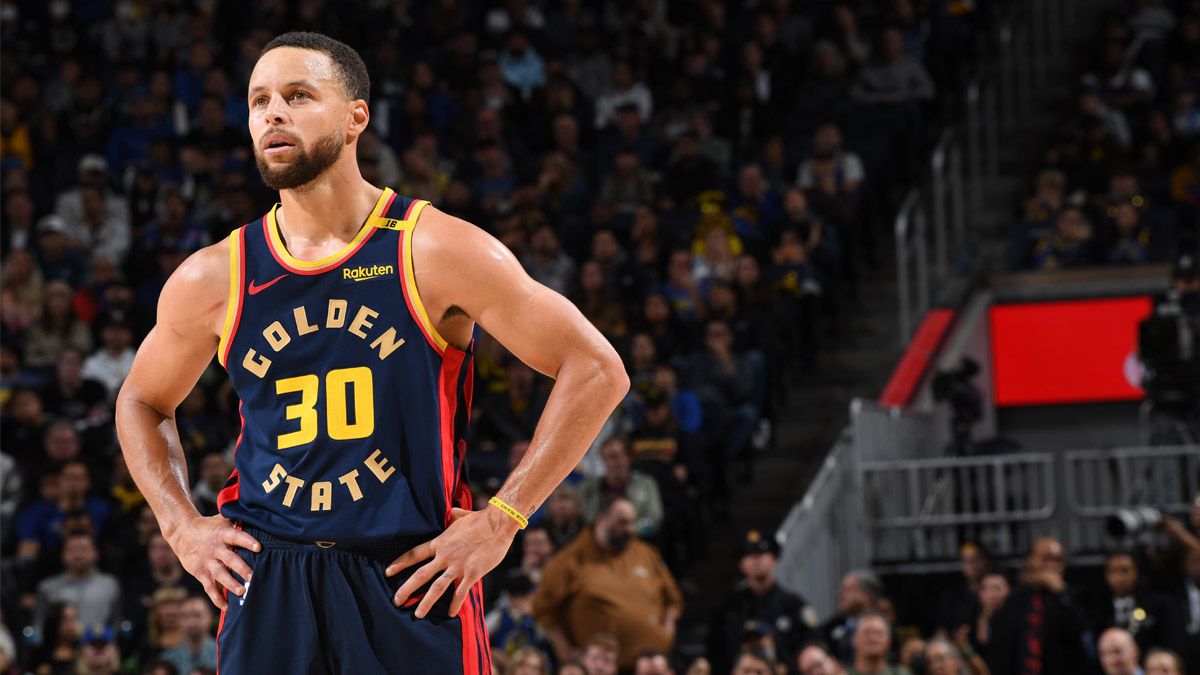Precisely 10 years ago Tuesday, the Warriors made the most profound decision since the franchise was purchased by a group led by Joe Lacob and Peter Guber in 2010. Less seismic than Kevin Durant, but more enduringly pivotal.
And it wasn’t initially popular with those in the locker room.
The hiring of Steve Kerr as head coach on May 14, 2014, only eight days after the dismissal of Mark Jackson was met with immediate puzzlement, was greeted with tepid skepticism.
Stay in the game with the latest updates on your beloved Bay Area and California sports teams! Sign up here for our All Access Daily newsletter.
Andre Iguodala, the team’s most respected veteran, questioned the firing of Jackson. Stephen Curry described Jackson, who presided over his NBA rise, was “a great coach.” Draymond Green said the team was “crushed” by the decision, citing year-over-year improvement and the franchise making back-to-back NBA playoff appearances for the first time in 22 years.
That’s the environment Kerr walked into on Day 1.
By early October, with training camp under way, puzzlement and skepticism began to fade. Six weeks into the season, amid a then-franchise-record 16-game win streak, they were a sepia memory.
When the season ended, on June 16 in Cleveland, the Warriors were each hugging other, shouting and spraying champagne all over the visitors' locker room and into the face of the first-year head coach.
Golden State Warriors
Find the latest Golden State Warriors news, highlights, analysis and more with NBC Sports Bay Area and California.
Kerr won over the roster with a combination of accessibility, humility, humor, empathy and candor – all of which conspired to deliver a franchise-record 67-15 season punctuated by Golden State’s first NBA Finals victory in 40 years.
Jackson was largely responsible for altering the perception of the Warriors from NBA afterthought to a team to be respected.
Kerr elevated the Warriors from a squad respected in basketball circles to a championship franchise that belonged among the NBA’s elite.
All because 10 years ago, in the second week of May, the Warriors met with Kerr in the hangar of a private airport in Oklahoma City, where Kerr was a TNT analyst for the Western Conference semifinals series between the Thunder and the Clippers. Golden State was represented by general manager Bob Myers, assistant GM Kirk Lacob, director of player personnel Travis Schlenk and Joe Lacob.
The Warriors had narrowed their choices to two: Former Orlando and Miami head coach Stan Van Gundy and Kerr, who had been a general manager in Phoenix but never a coach. Kerr was pondering an offer to coach the New York Knicks, then being run by Phil Jackson, who had coached Kerr with the Chicago Bulls.
When Van Gundy signed with the Detroit Pistons, the Warriors locked onto Kerr. He was curious about the reasons for the dismissal of Jackson. They were curious about his coaching principles.
Kerr was prepared. He diagrammed his coaching blueprint with a PowerPoint presentation that, according to Joe Lacob, “blew our socks off.” Kerr opted out of New York and into Golden State. The coaching search was over.
“Steve Kerr and Bob Myers together is my dream team,” Joe Lacob said during Kerr’s introduction in Oakland a few days later. “That is a dream team."
Kerr not only knew that most of the players had expressed public support for Jackson but also understood it. One of the factors behind Lacob’s decision to hire Jackson in June 2011 was that his name recognition would generate national publicity to a franchise that needed it. Jackson gave the Warriors an instant identity and a measure of credibility. He was the first coach since George Karl 25 years earlier to demand defense and get it.
“Mark Jackson built this defense,” Kerr said of Golden State’s third-rated defense when he arrived.
There were two specific areas in which Kerr, to the delight of Joe Lacob, greatly differed from Jackson. First, Kerr raised standards for assistants, hiring veterans Alvin Gentry as offensive coordinator and Ron Adams as defensive coordinator. Second, Kerr’s natural amiability allowed him to better navigate the halls of the franchise.
One of Kerr’s principles, “joy,” aligns perfectly with that of Curry but also is exuded when in the company of others unrelated to basketball performance. Put simply, Kerr’s presence raised the happiness quotient in the building.
The same must be said of the team’s success. The championship in Year 1, the NBA-record 73 wins in Year 2, the addition of Durant and a second NBA Finals triumph in Year 3 and third title in Year 4.
In the 10 years since Kerr signed his first contract, the Warriors have been the best team in the league. They have the most championships, four, the most regular-season wins (519) and the most postseason wins (99). They have become, by some metrics, including globally, the most popular franchise. Golden State was sixth in the NBA national TV appearances when Kerr arrived but has been first or second in every full season since.
The Kerr-Curry combination has been the most fruitful since the Michael Jordan and Phil Jackson were snatching rings with the Bulls more than a quarter century ago. Jackson has been out of coaching since 2014. His resumé, and his experience with the Warriors, indicates he deserves another chance.
But the decision made in that airport hangar 10 years ago was the right one. Numbers don’t lie. Neither do championship banners hanging in the rafters.


